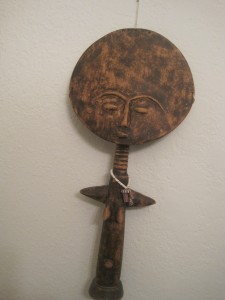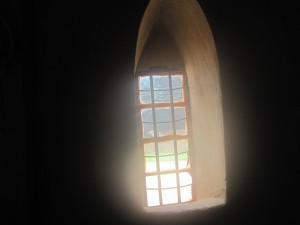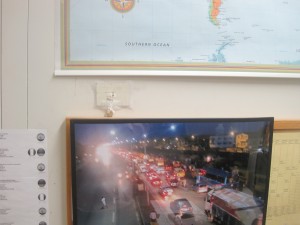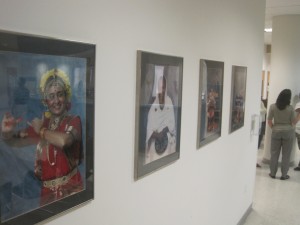I’ve been thinking about lost things. Where do they go? When I lost my bunch of keys a few weeks ago, and I exhausted my patience in searching for them in the most unlikely of places, I pondered what Carlin, my favourite comedian had said on lost things: “where exactly do they go?” It didn’t help that when the police finally traced it to me and gave me a call, they didn’t say where they found it either. They just took it to where they felt it belonged, and then gave me a call to come pick it up in its mangled state. At least one car had run over it… Sometime last year in one miraculous instance of divine intervention, I lost my $10 leather gloves along with sunshades I had got to make myself look a little more sophisticated in the sun. In any case, not only could I not find it, I also never figured out where it went, especially since I had gone to only one place that evening, and I’d gone back there to check many times, and it wasn’t there anymore, nor had anyone found it afterwards. Where did it go? And more importantly, what else did I lose with it that evening. That has always been my bigger worry.
 Since the incident of the key, I have lost a few more things still: a Nokia phone (which I got back a week later), and my new sunshades. I’m almost fed up with myself. Now, what prompted this musing is not even a desire for those material things, but the thought of losing even bigger things. There was a short play I wrote in 2002 titled The Sculptor. It was once performed in the University theatre by a handful of actors in a private production but I lost the manuscript of that play a few months after then and I’ve not come across it since then. Occasionally when I sit in silence, I can recall the lines long enough to write them down, but not in the right sequence. It was a three-man satire on the state of the nation’s politics and intolerance at the time when a religious law was introduced to some parts of the country. Some day, I know that I will come across it while rummaging through stacks of papers in a locked up suitcase, yet the thought of it totally disappearing unnerves me. Of course I’ve not written another play of its kind since then. It’s one of those consequences of movement, and changing seasons.
Since the incident of the key, I have lost a few more things still: a Nokia phone (which I got back a week later), and my new sunshades. I’m almost fed up with myself. Now, what prompted this musing is not even a desire for those material things, but the thought of losing even bigger things. There was a short play I wrote in 2002 titled The Sculptor. It was once performed in the University theatre by a handful of actors in a private production but I lost the manuscript of that play a few months after then and I’ve not come across it since then. Occasionally when I sit in silence, I can recall the lines long enough to write them down, but not in the right sequence. It was a three-man satire on the state of the nation’s politics and intolerance at the time when a religious law was introduced to some parts of the country. Some day, I know that I will come across it while rummaging through stacks of papers in a locked up suitcase, yet the thought of it totally disappearing unnerves me. Of course I’ve not written another play of its kind since then. It’s one of those consequences of movement, and changing seasons.
Today I discovered online an one old article about language, non-literary translation and computer based language technology which I wrote for a literary journal in 2005, and it brought back memories of an earlier even more fascinating experience. It was one of those writings of mine that I remember vividly because of the events around the time I’d written it. I was in a spiral limbo and needed to move forward, desperately. Writing it provided that avenue, unexpectedly, and I was set free. But it was the last paragraph of the piece that surprised me, because as far back as then, I had never even considered the possibility of finding myself as I do now at Uncle Sam’s neighbourhood. Lessons learnt: times also change. Fast.
I still keep that lesson in mind, everyday, as I search around for all my lost things.


